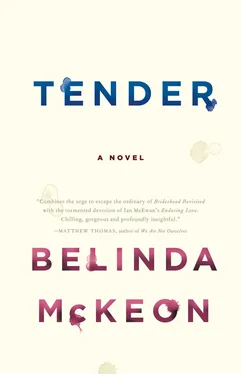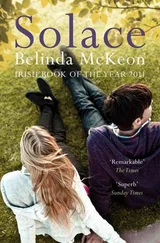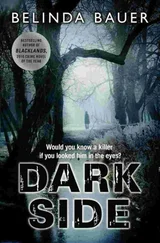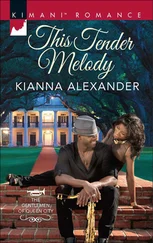“Oh, yeah,” James said, raising his eyebrows. “I read about the Tony nomination. Didn’t win though, did he?”
Catherine shrugged. “He’ll win yet.”
“And Robert Emmet?”
“He’s in the Dáil, believe it or not.”
“What?!”
“Not as a politician, obviously. But working for one. He’s a speechwriter for the Minister for Justice.”
“Oh, for fuck’s sake. Are you joking me?”
“No. I suppose someone has to do it.”
“I suppose a satirist is better qualified than anyone else.”
She laughed. “Yeah. But I’m not in touch with him. And anyway, I transferred to Goldsmiths in my last year, so I fell out of contact with most people. I’d sort of fallen out of contact with most of them anyway. Afterwards. You know.”
And there it was. “Afterwards.” Bringing with it the “before.” Surrounding them, now, in their very breathing, as though it were a cloud they had walked into, a cloud of chemicals or a cloud of tiny things that were alive. The low hum of it. The oscillation; a disturbance. Catherine inhaled slowly, deeply, almost warily, as though she could protect herself from its poison, but she could not; she had, after all, been the one to exhale it. A sightseeing boat plowed the river’s center; from this distance, the crowd packed onto the top deck seemed unmoving, resigned, like refugees, and it occurred to her to point this out to James, to make a joke of it, but James, she thought then, might very well not see the humor in it. Wherever the humor was.
“You know, I wasn’t completely honest with Meghan and Veronica back there, Catherine,” James said now. “About my reasons for coming here, I mean.”
“Well, it’s Christian’s birthday,” Catherine said, hurriedly.
“No, no,” James said, shaking his head as though explaining something to a child. “Christian’s birthday is why I came home last night from Italy. But here, I’m talking about.” He gestured behind him in the general direction of the exhibition tent. “The fair, I mean.”
“Oh.”
“I don’t give a fuck about what they sell and what they don’t sell. Well, I do, but there’s no need for me to be in there checking up on them. They’re right, a fair is no place for an artist. They’re just bloody rackets.” He glanced at her. “No offense.”
“None taken,” Catherine said, a little too eagerly.
“Yeah. Well, anyway, I was saying. It wasn’t the booth. Jonathan had a program for this on the plane last night, and I saw you were giving a talk.”
“Oh.”
“I’ve read lots of your articles, you know. Obviously. They’re good.”
“Thanks,” Catherine said, feeling awkward.
“No poetry anymore then? All journalism?”
She shook her head. “Oh, no. The poetry was just, you know. A teenage thing.”
“You were good at it, as I remember.”
“Not really.”
“Anyway. I mean, I’m sure this isn’t the first time work has brought you to New York,” he said, more briskly. “And obviously I’m in London a good bit.”
“Oh, yes,” Catherine blurted, “I saw your show at the Frith.”
“Arrah, that,” James said, shaking his head. “That was a rushed show. I shouldn’t have done that.”
“Oh, no, I thought—”
“I was going through some stuff then, I wasn’t right in the head, I don’t think. I was still drinking.”
“Right, right,” said Catherine, as though she was well acquainted with the fact of his sobriety, or indeed the fact of its opposite having been an issue, a problem, for some past version of James, who was at the same time somehow still — to her — a future version of James, since he was the James he had become in the time afterwards, in the time after she had stopped knowing him, been forced to stop knowing him, and she had never had the chance, in those years, to know him, and now that version of him, those years, was utterly gone. And the drinking must have been bad, then, if he had had to give it up. And had she done that to him as well?
“Anyway, you probably heard about all the stuff with Nate, and then Ed Dunne had to go and die of a heart attack in his bathtub, and ‘dead in the bath’ was all anyone wanted to hear, and that was — well. You can imagine how that was.”
“Yes,” Catherine lied.
“I mean, it was madness. Absolute madness. Some journalist rang my mother in Carrigfinn. Can you imagine?”
“Oh my God.”
“Frightened the fucking life out of her. She thought I was after dying in the bath.” He made a face. “Or worse, I’d say. I’d say she thought worse.”
“Oh, James.”
“And Nate.” He looked at her. “Have you crossed paths with Nate through the magazine?”
“No, actually.”
“Well, you remember him?”
She nodded, not quite able to get the word out.
“And he became even more full of himself once he started up his own gallery.”
“I’m sure,” Catherine said, not having to work hard at all to call up an image of Nate Lewis, a composite made from all the photographs she had seen of him online: the suits, the tan, the carnivore’s smile. Gone the boyish head of brown curls; he kept his head shaved, presumably to hide the places where the hair had refused to stick around. If he had been in the booth earlier today, what would she have said to him? She had gone in there feeling blasé about the possibility, feeling that the years could not hurt her, that the years, the traces of what they had brought with them, meant nothing, meant less than nothing, even, but if Nate had been in the Lewis booth that morning, what would she have said to him? Ridiculous, to feel herself almost panicking now, almost shuddering, at the thought of the thing that had not happened, and about the prospect of which she had not even been worried in the first place, but the sight, the fact, of James had changed everything. James here, and James walking with her, and James telling her, now, that he had come here to see her, and “afterwards,” and “before,” and this coffee in her hand, so cold and heavy and pointless, and these joggers, these strollers, these art crowds in their Acne and their Watanabe and their Demeulemeester, and this New York heat beating down, through this overcast sky—
“Didn’t stop me being in a relationship with him for nearly two years, though,” James was saying now, and he shook his head.
“Well,” Catherine began, “Everyone—”
He looked at her. “Everyone has to start somewhere, is that what you were going to say?”
“No, I meant—” she said, and stopped; this was, in fact, pretty much what she had been going to say. She chewed on her straw.
“Because I didn’t start with Nate, did I?”
“No,” she said, into the straw.
“Did I, Catherine?” he said, his voice more urgent.
She lifted her chin. “No.”
“I’ve wanted—” He sighed. “I’ve wanted to be in touch with you. For a while now.”
“Oh,” she said, and her heart seemed to be trying to elbow its way out through her chest. They were nearing a park bench; if she suggested that they sit down, would that make things better or worse? Was it better to be moving? Better for your legs to be out from under you?
“I shouldn’t have cut off contact the way I did, Catherine,” he said, his voice jumping. “That was the wrong way to go about it. Whatever ‘it’ was.”
“Well,” Catherine said. “‘It’ was Liam. What happened with Liam. What happened to Liam, because of what I did.”
James nodded slowly. “I’m still in touch with him, you know. Facebook, needless to say.”
“Oh,” Catherine said, more brightly than felt appropriate. “How is he?”
He nodded again. “He’s good. He teaches in Belfast now. He has a partner.”
Читать дальше












